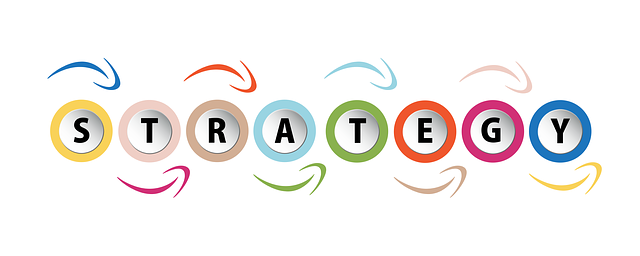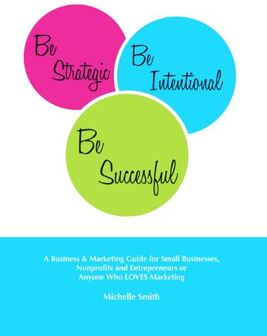|
One of the biggest mistakes business owners make is starting off without a comprehensive strategy for their business. It’s too bad because business owners really do need a solid strategy to let them know when they’re headed in the right direction, and when they’re straying off course. Unfortunately, the old saying really is true that if you fail to plan, you plan to fail. If you’re still not sure you need a strategy to guide your business decisions, let’s go over four of the big reasons why you should reconsider. Define Goals and PrioritiesBefore you can draw a roadmap that will get you to your goal, you first have to define where that goal is. Having a goal in mind also makes it easier to prioritize your tasks. As small business owners, we often have to do everything for our businesses, but at the same time, there’s only so much one person can do. We can’t go to all the networking events or be on all the social media platforms, but a business strategy can help us identify the networking events and the social media platforms where our target audience is most likely to be spending time. It enables us to focus on what matters and ignore the rest, which is key to growing our business. Better Communicate Your MessageGetting in front of your target audience is only half the battle. Once there, you need to be able to convince them to buy your products/services, and having a business strategy in place makes it much easier to both create and communicate your message. A key component of any business strategy is identifying your target audience and the pain points you’re solving for them, and only once you’ve done that can you craft a message that resonates with your audience and communicates it to them in a way that engages them and convinces them to take the next step in the buyer journey.
team what you want from them, which makes for a team that works better and helps you to reach your goals, rather than holding you back by making you put out fires they created because they didn’t understand the overall direction of the company. Helping You GrowWhen you’re first starting out, it’s often tempting to take any and all work that comes your way, regardless of whether it fits into your larger goal of what you ultimately want for your business. While you might be telling yourself you can’t afford to turn down a potential client, the fact is a prospect who doesn’t fit the definition of your ideal client can end up holding you back from connecting with clients who could end up being much more valuable for your business in the long run, so are you really doing yourself any favors by taking on work that will ultimately hold you back from growing your business? If you’ve been putting off creating a strategy for your business because you’re not sure how to go about creating one, schedule a call to see how a Strategy Rockstar can help you create a business strategy that allows you to grow your business faster.
0 Comments
StrengthYou’ve probably been told to play to your strengths in all kinds of situations in life, and it’s true that the key to success lies in identifying your strengths and making the most of them. In business, this is also sometimes called your unique selling proposition (USP), meaning it’s the thing that makes you stand out from the competition. It’s the reason someone should decide to work with you instead of your competitor. Once you’ve identified your strengths, you can start focusing on them in your marketing materials. Every page of your website and every pitch you give should contain some element of your strengths. By focusing on what you do best, you’ll also gain the confidence you need to convince your prospect that they want to work with you. Weaknesses No one likes to talk about their weaknesses, but it’s important to identify them, just like it’s important to identify your strengths. Ignoring your weaknesses won’t make them go away, but you do have two options when it comes to addressing your weaknesses: 1) educate yourself so your weaknesses become your strengths: or 2) hire someone else to do it. Some skills can be learned, and as entrepreneurs, sometimes we just have to learn to do it ourselves until we can afford to hire someone to do it for us. Other times trying to develop a new skill is just not the best use of our time and we’re better off finding a way to get someone else to do it. If you can’t afford to hire someone, see if you can get an intern to do it for free or minimum wage. Ask around at your local high schools and/or colleges to see if they might offer their students educational credits for the time they spend working with you. You can also offer to trade services, so instead of paying them for their time and effort, you provide some of your expertise and service instead. I've done that with some of the people on my team and it’s been so awesome! Opportunities Sometimes we get so excited about the benefits we offer our clients that we miss other opportunities, even if they’re staring us in the face. When you do your SWOT analysis, it’s important to take some time to think about all the opportunities you have in your business. What do your clients need from you? Is there an easier way you could offer your products or services that would make buying from you more tempting? For example, bundling products/services is a great way to make it easy for clients to buy a bunch of things from you at once. So, if you have some products/services you tend to sell together anyway, why not bundle them together at a slightly lower price? This aspect of your SWOT analysis can also help you identify some things you could offer your clients that you are not yet offering. For example, if they don’t have the budget to pay you for your services, could you offer a course to teach them how to do it themselves? Sometimes achieving success requires us to think outside the box a little and a SWOT analysis can help you do that. Threats Finally, you have to identify the threats to your business. This includes your competition, but also objections people might have to buying from you. Instead of ignoring the competition or taking the objections at face value, take some time in your SWOT analysis to take a close look at them. What is your competition doing that you’re not doing? Can you copy some of their strategies? Alternatively, if you notice they’re targeting a specific niche, maybe you could target a different niche that isn’t getting as much love from your industry.
|
Why Morsels?Business advice, 
Please tell me how you found me
Archives
June 2022
Categories |
|
Office: 815-524-4307
|






 RSS Feed
RSS Feed




